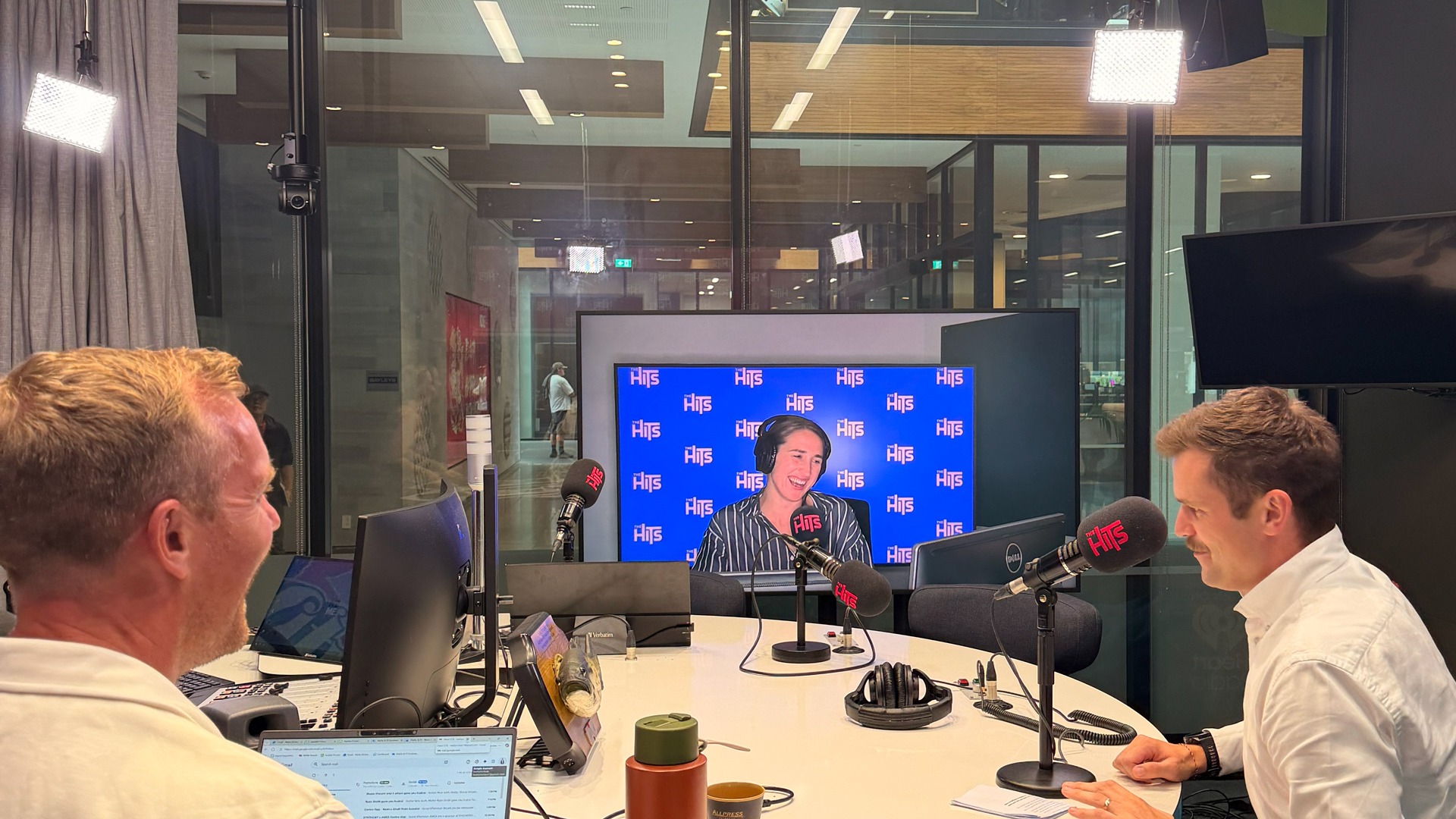Third quarter earnings season in the US has kicked off with a hiss and roar – and plenty of volatility. Milford Senior Analyst Stephanie Batchelor chats with Ryan Bridge about banks, housing, Netflix and the world’s favourite luxury brand.
Listen.
Click here to download the MP3 file or listen to the podcast on your favourite platform:
Read.
Bridge talks Business: 29 October 2024
Episode Transcript
Ryan Bridge
Welcome to Episode 12 of Bridge talks Business with Milford. This week we delve into quarter three earnings reports out of the States. What do they tell us about the health of the world’s largest economy as it hurtles towards electing a brand new president? We’ll find out, but first your top five business bits from the past week.
1. The Reserve Bank Governor Adrian Orr says interest rates will continue to fall at coming meetings. There was some expectation that the bank may cut by three quarters of a percent but it’s much more likely to be in the range of half a percent delivered.
2. Global purchasing manager Business Surveys were little changed from the previous month but they confirmed the trend of weaker manufacturing but stronger services industries. Geographically, the US stands out as a strong economy compared to other developed countries.
3. US bond yields continued their surge last week as investors continue to turn more optimistic on the trajectory of economic growth but also weary of inflation, raring its head again.
4. This week we have a busy period of potentially market-moving news, including a raft of economic data and the latest companies – the biggest ones in the world – reporting their results.
5. But the event consuming all the oxygen in the room is undoubtedly going to be the US election, which happens next week, with the markets picking Donald Trump will take the White House.
Welcome to our feature interview this week. It is great to have you here. We’re going to look at quarter three earnings season out of the United States. Obviously the world’s largest economy, but also has some of the world’s largest companies. So how are they faring? Just to note, this segment is informational only and should not be considered financial advice. I’m delighted to have back on the podcast today Stephanie Batchelor, a Senior Analyst at Milford.
G’day.
Stephanie Batchelor
Hello.
Ryan Bridge
Good to have you back.
Stephanie Batchelor
Good to be back, Ryan.
Ryan Bridge
So let’s talk about, last time we spoke about earnings reports, we looked at what the banks are saying about the health of the economy. What have they said this time round?
Stephanie Batchelor
Yeah, so they provide a pretty good read through of the broader economy. And all the US banks delivered very strong results. In particular, they said they saw a lot of positives in the capital markets. So Morgan Stanley said they’re in the early stages of what they see as a multi-year recovery in capital markets. And essentially that’s corporates are feeling more confident to embark on. Mergers and acquisitions raise equity. And all of that drives those big bank investment fees.
The other thing they said was around the US consumer, still quite resilient. They’re seeing solid spending patterns. They did say that the lower income consumer is still quite stretched. So that’s where they’re seeing higher delinquencies, lower deposits, and higher credit card balances. They did say though that easing inflation and rates coming down will benefit that cohort.
Ryan Bridge
Right, so the capital markets thing is interesting, isn’t it? They’re basically saying they’re a bit more confident, they’re willing to go out and buy up other companies and expand things like that.
Stephanie Batchelor
Yeah, they’re happy to take on some more of that risk.
Ryan Bridge
OK, what about housing? Because that’s another big one when we talk about the States. It’s been struggling a little bit. What are the companies involved with, either construction or whatever, what are they saying about the housing market?
Stephanie Batchelor
One US home builder reported, Pulte, and it was a disappointing result. So they said that affordability for first-home buyers is still really tough. And then for other buyers, this election overhang is having a bit of an impact. Because often people don’t want to make big life decisions, big financial decisions when there’s political uncertainty. They did say though that when interest rates started to come down, they did see a pickup in demand. So it might just be a place that we have to be a bit more patient with.
Ryan Bridge
OK, interesting. What about, you mentioned the lower income consumers. What about the other end of the market, the luxury brands? Because you would think that even though there’s a recession on, even though things are tough, that people have got lots of money are still out there spending, are they?
Stephanie Batchelor
This is an interesting one. The luxury goods companies do have a higher income consumer, and they have generally held up better. But the issue for the luxury goods companies over the last year has been China, a very weak housing market, consumer sentiment very low. And so the Chinese people are just not travelling or spending as much as they historically would have. So if we look at Louis Vuitton Moet Hennessy, or LVMH, that’s the largest luxury goods company in the world. And it’s sort of considered a bit of a bellwether for this space. They had their share price fall 30% between March and September. And then in September, they announced the Chinese stimulus. So the market got excited thinking, OK, Chinese demand is going to be reignited. The share price moved up 20% in just one week. And then, of course, after that, more questions started coming. You know, how long is the stimulus going to take to flow through? What form is it going to take? And so the stock started to fade because those answers are not yet available.
Ryan Bridge
It’s interesting because someone was saying that their demand at the moment in China for luxury goods is as bad as it was during Covid.
Stephanie Batchelor
So, LVMH reported their financial result about two weeks ago. And it was quite disappointing. So their key segment, fashion and leather goods, revenue fell 5%. Now, this is the first quarterly decline in that segment since 2009, if we exclude Covid. And management said that consumer sentiment today in China is back to the all-time lows that they saw during Covid. So that Chinese cohort has gone from a mid to high single digit growth in China for LVMH. To this quarter, it was negative mid single digits. So there is a big deterioration. They also said that other nationalities were weak. And even though they do believe in that longer term structural growth of luxury, there’s just no kind of near-term inflection for investors to hang their hats on. So shares were down 4% and pulled some of the other luxury names along with it.
Ryan Bridge
Goodness me. All right, let’s talk about technology because the best story of the week, I think, was the fact that the Nvidia, the AI chip company, overtook – was it Microsoft? Overtook Apple and Microsoft to become the most valuable company in the world last week. I think it might have nudged back a little bit since then. But what’s going on in this space?
Stephanie Batchelor
This is a really interesting space, the semiconductor tech space. We had ASML. This is a company that provides equipment to the big semiconductor manufacturing companies. They actually had quite a negative result. They lowered their expectations for next year’s earnings. And because of that, the market got a bit worried. They thought, is this the end of the AI boom? Or is AI starting to fizzle out? A few days later, another company called TSMC – this is the largest semiconductor manufacturing company in the world, and it’s actually one of ASML’s customers – they reported a record third quarter.
And it completely eased fears that the AI boom is – effectively said – the AI boom is alive and well. And that, of course, then boosted Nvidia to all-time highs. So there’s a lot going on in this space, but it’s very interesting.
Ryan Bridge
So it’s quite funny, not just with the technology one you mentioned, but with the luxury goods, that one company’s value and earnings reports can really affect other ones in the same market.
Stephanie Batchelor
Absolutely, yeah. And so, for example, with luxury, it pulled some of the other luxury names down. But then those luxury companies reported, and it was quite mixed. So we had Kering, which owns the Gucci brand. They had their third profit downgrade, or profit warning, in a row. And they said Gucci revenue is down 25%, which is pretty negative. And it’s all because of China. But then Hermes, which is another luxury company, reported revenue up 11%. They’re still seeing a slowing in China, but to a much lesser extent. They target a much higher income consumer. They actually have waiting lists for their most popular bags, so that gives them very strong pricing power. There’s also been some studies that show, when they held a Hermes Birkin bag over the long term, the annual return from that would outpace the S&P 500. So people sort of see these bags as investments.
Ryan Bridge
All right, so what else have we learned from reporting season from the third quarter?
Stephanie Batchelor
If we go down the expensiveness spectrum a little bit, we can think of like athleisure, Nike, Adidas, two brands that everyone knows very well, but very different fortunes at the moment. Nike’s been struggling. They pulled back from selling their goods through retail partners. And so that left a lot of shelf space that competitors were then able to fill. Nike also hasn’t been innovating as much. So they actually withdrew their guidance and they postponed their investor day, partly because they now have a new CEO as of two weeks ago. So they’re giving him time to get up to speed, implement a turnaround strategy. But it is one that you have to have patience for. Then if you think of Adidas, very different. So they have very strong brand heat. They did announce to beat and raise for the third time in a row. And they’re being a lot more innovative. They’re seeing very popular demand for their popular sneakers, like the Samba and the Spezial and things like that. So two similar companies, very different kind of outcomes.
Ryan Bridge
So can you postpone your investor day? Is that hard to do?
Stephanie Batchelor
It is taken badly because people look forward to these investor days as events where you get a good amount of information, you get to see what the company is thinking going forward. But of course, with a new CEO, it’s very difficult for him to come into the company and all of a sudden be able to provide his view after two weeks. So it does make sense. But, yeah, patience is required. Yeah.
Ryan Bridge
Stephanie, my two favorite companies, Netflix and Tesla. You can’t go past the Netflix or Tesla story without reading it. So they’ve both reported now. Let’s start with Netflix. How are they doing?
Stephanie Batchelor
They actually reported their most profitable quarter ever. Now, despite subscriber growth slowing, and it’s slowing because they’ve gone through a period where they’ve cracked down on password sharing. So all those people who were sharing passwords have had to sign up as new customers. So they had very strong subscriber growth. That’s now starting to fade. But they have other growth drivers that are taking its place. So one of them is their ad-supported membership model where people pay a little bit more to have no ads and a little bit less if you’re happy to have some ads. So they not only get more revenue from the memberships, but they also get that advertising revenue as well. So very strong result for Netflix.
Ryan Bridge
And very smart move too. You’re diversifying your revenue streams at the same time, right? What about Tesla? Tesla sort of surprised everyone.
Stephanie Batchelor
Yeah, it was a blowout quarter. Shares were actually up 22 percent, which was a huge move. And it was for a few things. They had a very strong result in their energy storage business. Their Cybertruck turned a profit for the first time ever. And then, of course, Elon Musk gave some very optimistic targets for next year. He said there’s going to be some new models coming out, some more affordable models coming out in the first half of twenty five. And they plan to roll out autonomous ride hailing in Texas and California next year subject to regulatory approval.
Ryan Bridge
Right. It’s interesting because China is obviously massively subsidising electric vehicles. So that’s kind of a threat to Elon Musk and to Tesla. Right? But when he comes out and says stuff like that, we’ve got these big plans of it. Do the markets listen?
Stephanie Batchelor
They do. I mean, shares were up 22 percent on the day. So people did get excited. It’s interesting how it impacts other companies as well, because on that day, that Tesla went up and they announced their autonomous ride hailing. And they gave some information around the cyber cab as well. Uber and Lyft sold off because, of course, if that comes to fruition, that’s more competition for those companies. So it’s an interesting dynamic going on.
Ryan Bridge
Let’s talk about then the future. So we’ve obviously had the results now. What are these companies that have reported thus far expecting about the future? And what about the ones who haven’t reported yet?
Stephanie Batchelor
So overall, if we think about the third quarter earnings, it’s not a great quarter. So growth has decelerated from the second quarter to the third quarter. But investors understand that and expectations have come down. What investors are really focused on is the outlook. What are companies saying about the future prospects, particularly because we’re now in a rate-cutting cycle? So that’s what the focus is. We’ve got the biggest week of earnings season this week. So that’s when we have a lot of the mag seven. We’ve got Apple, Amazon, Microsoft, Meta and Google all reporting this week. So there’s a lot of focus on that. It’ll be a big week for markets.
Ryan Bridge
Certainly will. Thank you very much, Stephanie. Great to have you back on the podcast.
Stephanie Batchelor
Thanks, Ryan.
Ryan Bridge
It’s Stephanie Batchelor, a Senior Analyst at Milford. Don’t forget you can like, subscribe, watch us, listen to us wherever you like. We’ll be back next week with, by then, we should have an election result. We may have an election result by next week’s podcast. We’ll find out. See you then.
Missed last week’s episode? Don’t worry! Click here to catch up now.


